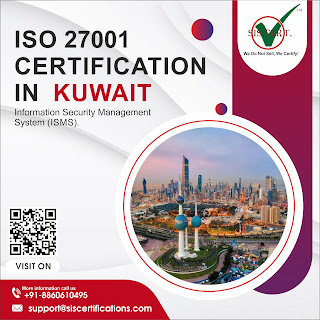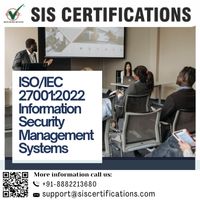يغطي ISO 27001 استمرارية العمل

معيار ISO 27001 استمرارية الأعمال كجزء من إدارة الأمان الشاملة للمؤسسة. تتطلب استمرارية الأعمال تحديد المخاطر المحتملة التي يمكن أن تؤثر على استمرارية الأعمال ووضع خطة للتعامل مع هذه المخاطر وإدارتها في حالة حدوثها. تحتوي معايير ISO 27001 في الكويت على متطلبات إدارة استمرارية الأعمال ، وتشمل تخطيط وتنفيذ واختبار وصيانة خطط استمرارية الأعمال. تساعد شهادة ISO 27001 في الكويت على تحديد المتطلبات المطلوبة لتحقيق استمرارية الأعمال وتحديد الإجراءات والتدابير المطلوبة لإدارة المخاطر وتجنب التوقف غير المخطط له. من خلال تنفيذ متطلبات استمرارية الأعمال ISO 27001 في الكويت ، يمكن للمؤسسات تحسين قدرتها على التعامل مع حالات الطوارئ والتعرض للمخاطر ، والحفاظ على استمرارية أنشطتها التجارية بشكل م Related Standards - ISO Certification in Kuwait ISO 9001 Certification in Kuwait ISO 14001 Certification in Kuwait ISO 45001 Certification in Kuwait ISO 27001 Certification in Kuwait ISO 13485 Certification in Kuwait ISO 22000 Certification in Kuwait ISO 22301 Certification in Kuwait




.jpg)

.jpg)
.jpg)
.jpg)
.jpg)